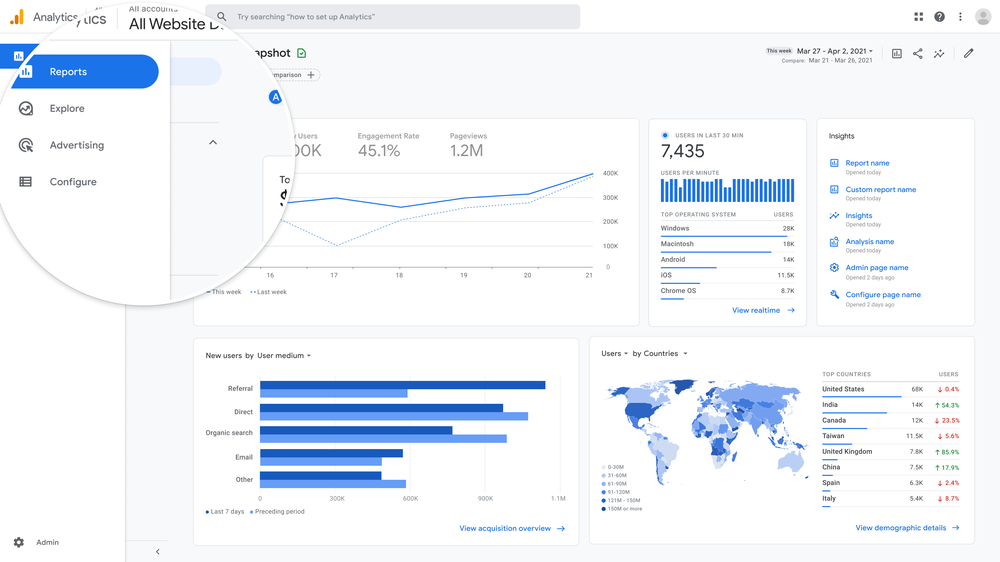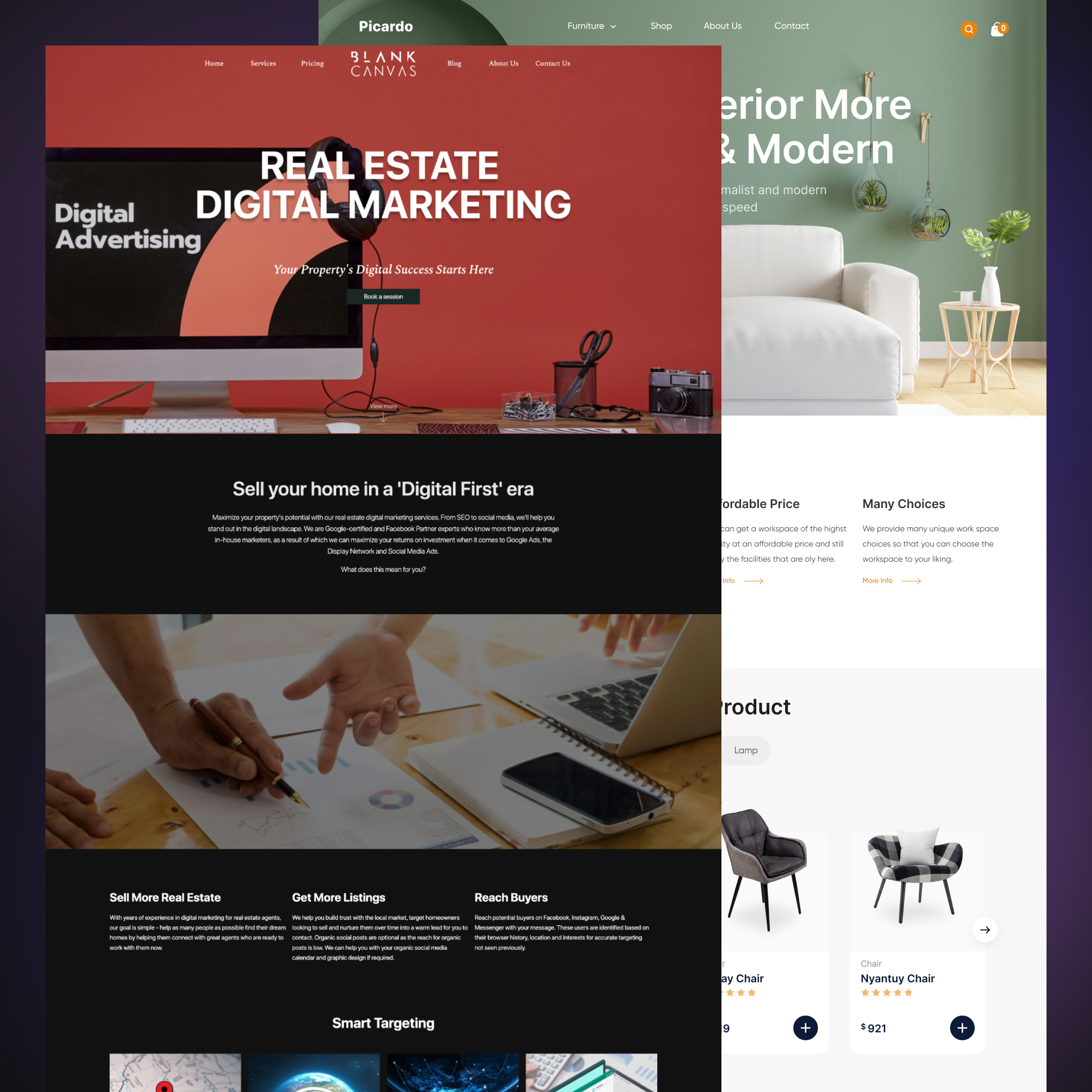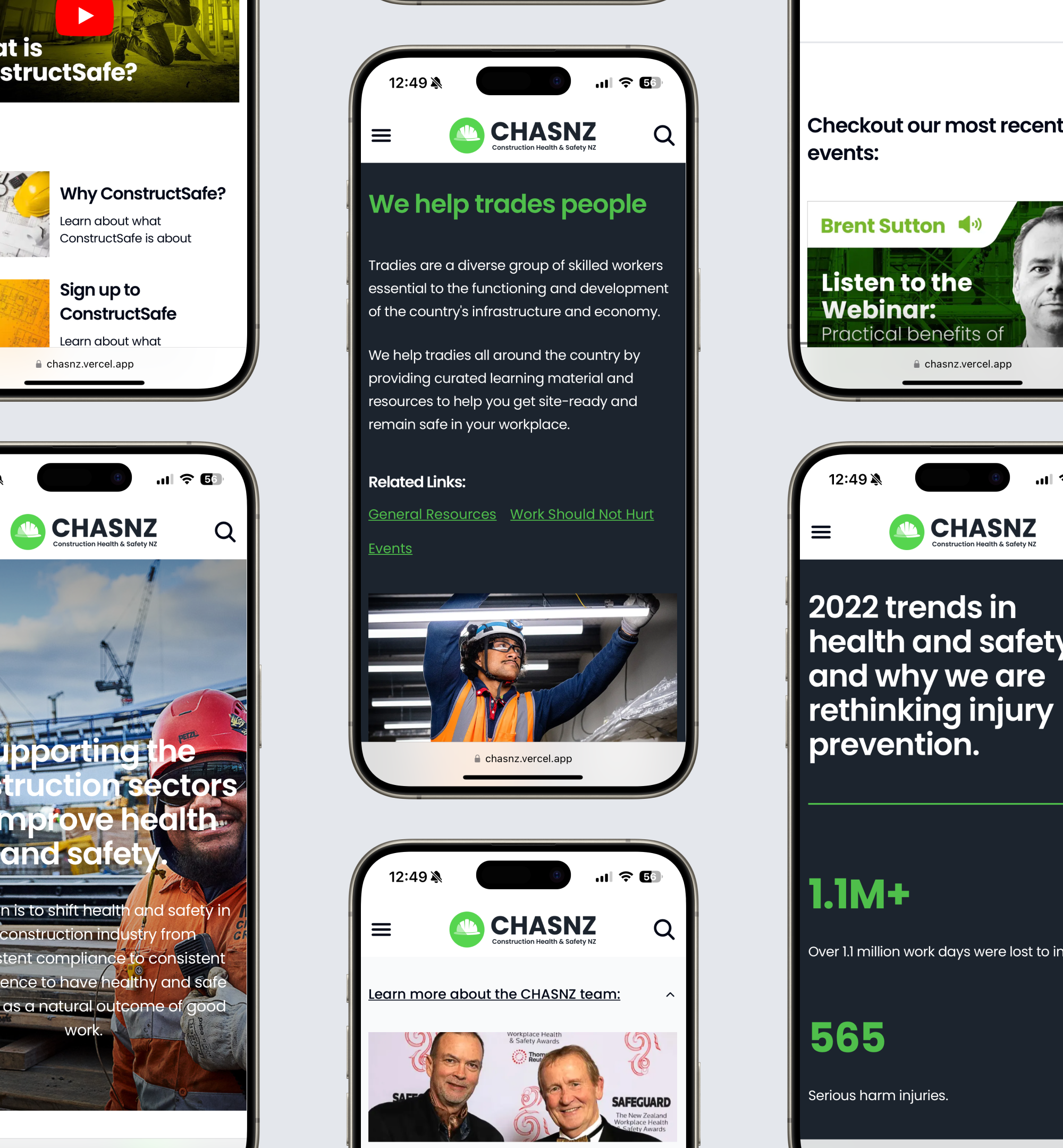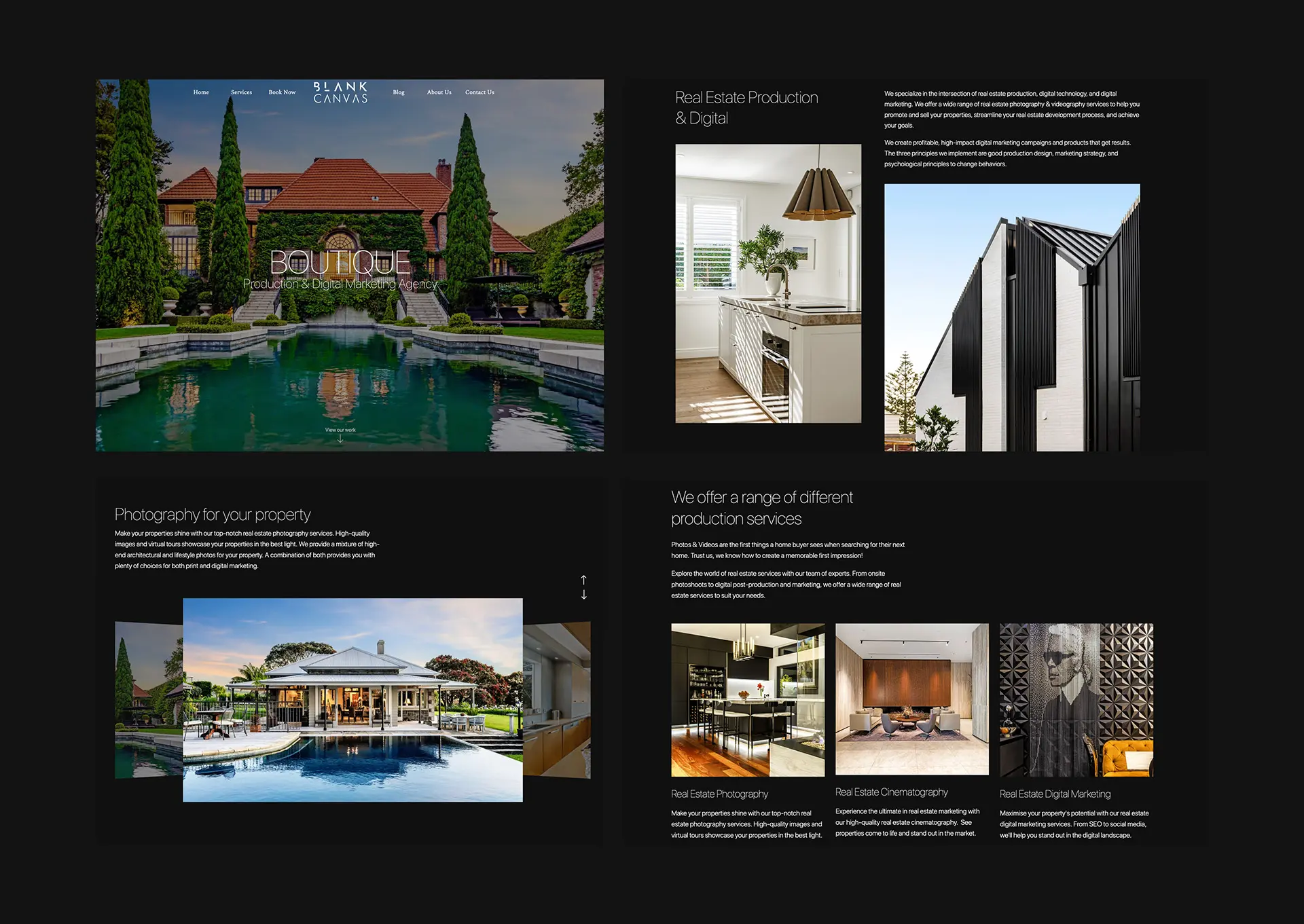Why do some businesses thrive online while others blend into a digital sea of sameness? The answer often lies in their approach to web design. A custom-built website is more than just an online brochure – it’s a powerhouse for branding, user experience, and functionality. In 2024, with digital competition sharper than ever, investing in a custom website isn’t just smart; it might be essential for your growth.
Let’s dive deep into why a custom website matters and how it can propel your business forward.
What Makes a Website Custom?
Custom websites are built from the ground up, designed and coded specifically for your business needs and brand identity. Unlike template sites, which come pre-packaged and limit flexibility, custom-built sites offer endless possibilities and are more visually appealing. Think of it as the difference between a tailor-made suit and one off the rack: the former fits you perfectly, looks unique, and speaks to your personal style.
Why Should You Consider a Custom Website?
- Enhanced Brand Identity: A custom site mirrors your brand’s voice and values. No cookie-cutter designs here; every visual element and web page is built to resonate with your target audience.
- Flexible Functionality: Need a specific feature or interactive element? Custom websites can be coded to match any business requirement.
- Scalability: Your business will grow, and a custom website grows with you. Custom sites allow for easy updates and additions as your services or products expand.
Benefits of a Custom Website
1. Tailored User Experience
What It Looks Like: A tailored user experience means every page, feature, and interaction is designed with the user’s specific needs in mind. This involves customised navigation structures, intuitive interfaces, and interactive elements that align with the user journey. For instance, an e-commerce website can have a multi-step checkout process optimised making it easy to navigate, while a services site can integrate interactive tools like calculators or assessments that engage visitors.
Why It’s Important: When users land on a site that feels personalised, they’re more likely to trust and stay engaged with the content. This attention to detail increases time-on-site metrics, boosts brand credibility, and improves conversion rates. Custom sites can also adapt over time based on user feedback and data insights, making them a long-term investment in customer satisfaction.
2. Superior SEO Performance
Details: Custom websites have a clean, optimised codebase tailored specifically for SEO. Developers can control aspects like site structure, page load speed, and mobile responsiveness to boost search engine rankings. Unlike templates that may come with bulky, unnecessary code, custom websites are streamlined, ensuring that they meet SEO best practices.
Why It Matters: Search engines reward sites that provide a seamless user experience, quick load times, and mobile compatibility. Optimised sites improve visibility, leading to more organic traffic. This gives businesses a competitive edge, allowing them to appear ahead of competitors who may be using slower, less-optimised templates.

3. Better Security
How It Works: Custom websites provide the opportunity to integrate high-level security measures specific to the business’s needs. From custom-built firewalls to strong data encryption and proactive threat detection, developers can tailor security measures that templates don’t usually offer.
Significance: In today’s digital landscape, data breaches and cyber threats are increasingly sophisticated. Custom websites can be better equipped to withstand such threats, protecting sensitive data and maintaining customer trust. This is especially important for industries dealing with personal or financial information, such as healthcare and e-commerce.
4. Ownership and Control
Explained: When you invest in a custom website, you own the code and have full control over the entire site. This allows for seamless updates, new feature integrations, and a high degree of customisation without relying on the limitations imposed by third-party platforms.
The Benefit: With ownership comes flexibility. Businesses can quickly adapt to changing market demands, introduce new content or features, and integrate third-party tools without the hassle of platform-imposed restrictions. This level of control also ensures the site’s longevity, allowing for significant updates without starting from scratch.
Difference Between Custom and Template Website Design
Custom Website Design
Custom sites are developed from scratch to meet the specific goals and brand identity of a business. This level of customisation enables unique designs and features that fit seamlessly with a company’s business model.
Template Website Design
Templates are pre-built frameworks that allow for limited customisation. While faster and more affordable, they come with restrictions in terms of design and functionality. This can limit brand uniqueness and the ability to scale.
Key Differences
- Flexibility and Customisation: Custom websites provide unlimited customisation options, while templates offer limited tweaks.
- Performance: Custom sites can be optimised for specific performance goals like faster load times, better mobile adaptability, and high SEO standards. Template sites may come with bloated code that can hinder performance.
- Unique Brand Expression: Custom websites allow businesses to express their brand fully. Templates may not align perfectly with a company’s voice or style, making them more generic.
Check out our article here that goes deeper into the differences between custom and template design websites and what option is best for your business!

What is the Cost for Custom Websites?
Breakdown of Costs
Building a custom website often involves significant investment, which can range from $5,000 to $50,000 or more. This range includes design, website development, testing, and deployment, with additional costs for added complexities like custom e-commerce functionalities or proprietary tools.
Because costs vary hugely, it’s best to talk to a web agency who can give you a better idea of what’s needed. Reach out to Builtflat here for a free quote!
Factors Influencing the Cost
- Scope of Features: The more features or specialised integrations required, the higher the cost.
- Design Complexity: Unique layouts or graphics can increase design expenses.
- Development Time: Larger, more intricate projects will require more development hours, driving up the price.
- Web Agencies: Generally when creating custom websites it’s best to use an agency with qualified designers & web developers. This can run up costs when building a website, but the it’s worth the experience and expertise backing it.
One of the best ways to navigate around huge upfront website costs is designing and developing with scalability in mind. Custom websites are easier to add on to and grow later on than template design websites. Which means that you can distribute the cost of features or web pages over a longer period of time, growing your site as your business grows!
What is the Time Frame for Custom Websites?
Typical Time Frames
Custom websites usually take between 6 to 16 weeks to develop. This time frame varies based on the scope and complexity of the project.
Phases of Development
- Discovery and Strategy: 2-3 weeks to outline project goals and user pathways.
- Graphic Design and Prototyping: 3-4 weeks for wireframes and mock-ups.
- Development and Coding: 4-6 weeks, depending on the complexity.
- Testing and Launch: 1-3 weeks for quality assurance and final adjustments.
Influencing Factors
- Project Scale: More extensive projects with more pages or intricate features take longer.
- Feedback Cycles: Timely responses from clients can accelerate or slow down development.
- Resource Allocation: Larger development teams can shorten the timeline.
What are the Disadvantages of Custom Websites?
Higher Initial Cost
One of the most significant drawbacks is the upfront cost. Custom sites involve various experts, from UI/UX designers to developers, which can make them more expensive than template alternatives.
But remember, keeping scalability in mind can help split up the cost and get your business into a custom design sooner.
Longer Time Frame
Custom websites take longer to develop due to their personalised nature. For businesses needing a quick turnaround, this can be a limiting factor.
Maintenance and Updates
Custom sites might need specialised maintenance, especially for businesses that integrate complex features or security measures. This means additional, ongoing costs.
Template websites don’t bypass this though – As most run on plugin’s which will need updating and site maintenance just as custom web designs would.

How Important are Custom Websites in New Zealand?
Relevance in the Market
In New Zealand, the business landscape is increasingly competitive, with industries like tourism, e-commerce, and real estate requiring standout online presences. Custom websites allow businesses to showcase their brand story and values effectively.
Benefits for Local Business Websites
- Built & Designed For Your Clients: Custom sites can connect with your target customers better than templates, considering that pre-built designs are made for a wide variety of geographical locations. A site that designed for a business in Melbourne, Australia may not work for a business in Tauranga, New Zealand.
- Features suited to your business: Custom sites can incorporate unique, interactive features like booking integrations or multi-language support to cater to local and international audiences.
Trust and Engagement
Custom websites convey professionalism and build trust. For businesses in New Zealand, having a site that aligns with cultural expectations and local market needs is essential to gaining customer confidence.
How Important are Custom Websites in Australia?
Demand for Custom Solutions
Australia’s digital landscape encourages businesses to adopt custom solutions for better user experience, brand representation, and search engine optimisation (SEO). With strong competition in key industries, businesses that invest in custom sites gain a substantial advantage.
Competitive Advantage
Industries like finance, healthcare, and retail in major cities like Sydney and Melbourne use custom sites to differentiate their services and optimise their user experiences.
Adapting to Trends
Custom websites can adapt quickly to trends, whether it’s implementing new technology like chatbots or adhering to local SEO standards that change over time. This adaptability is critical for long-term success in a dynamic market like Australia.
Conclusion
Investing in a custom website is more than just building an online presence – it’s crafting a digital experience that sets your business apart. Whether you’re looking to scale, strengthen your brand, or improve SEO, custom-built sites provide unmatched flexibility, security, and performance. They are designed to evolve with your business, ensuring long-term benefits. Make 2024 the year you transform your online strategy.
Ready to elevate your web presence? Reach out to Builtflat today to begin your journey with a customised, high-performance website tailored to your needs!
Want to find out more about Custom websites? Check out our blog where we post more in-depth information on everything around sites.
